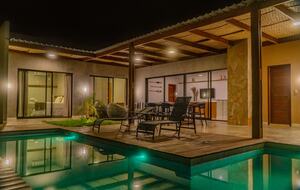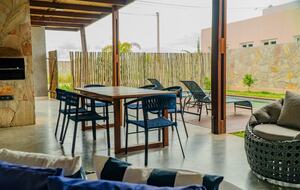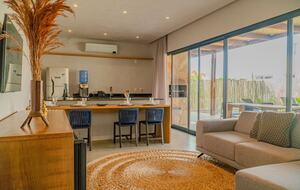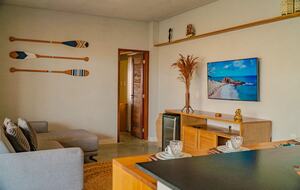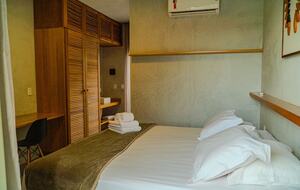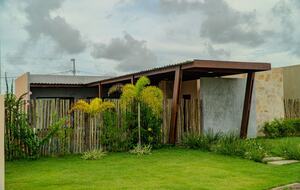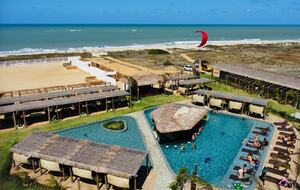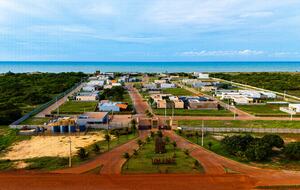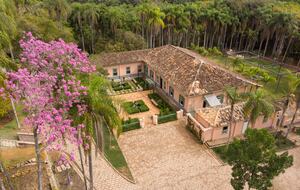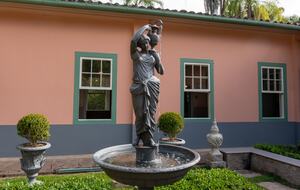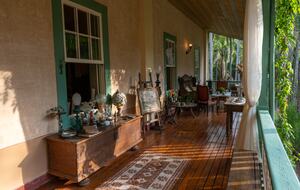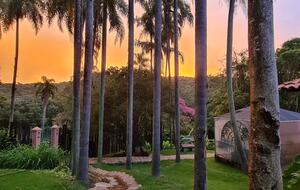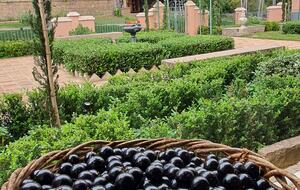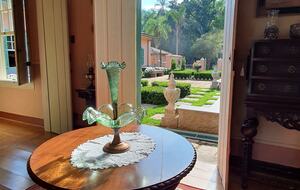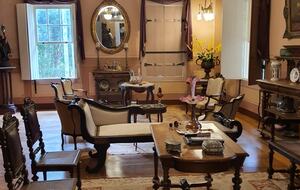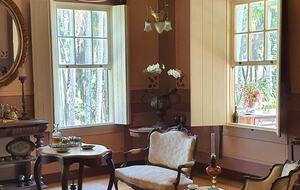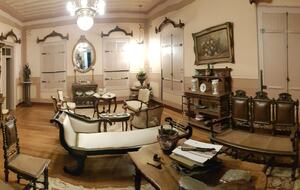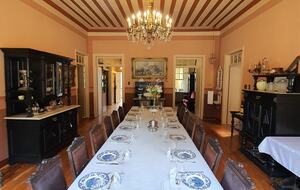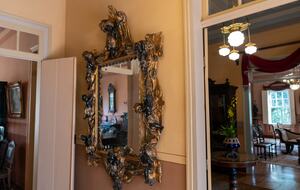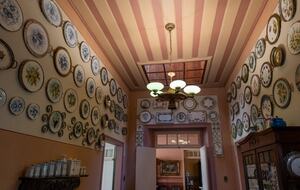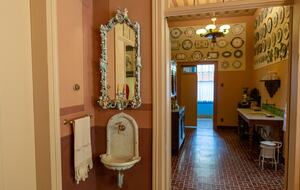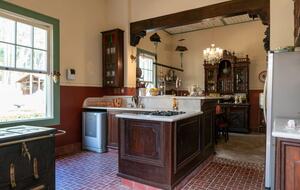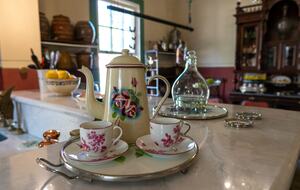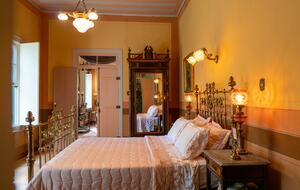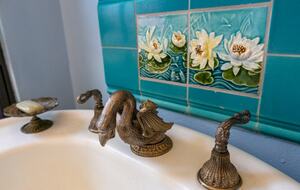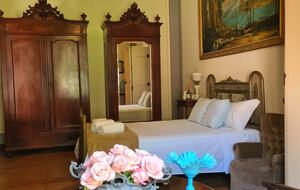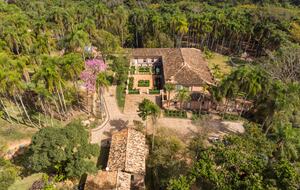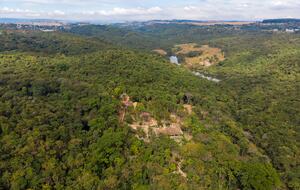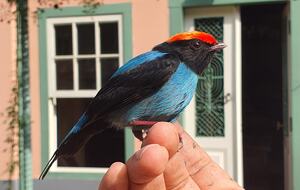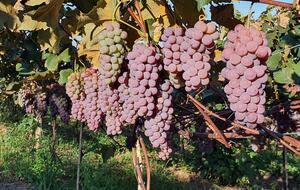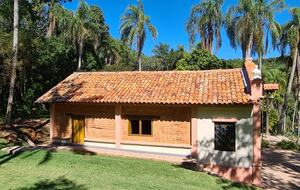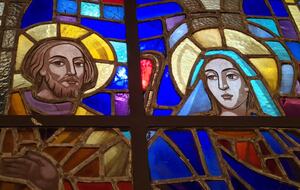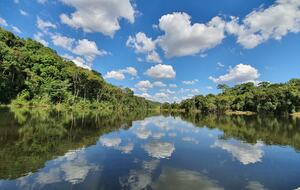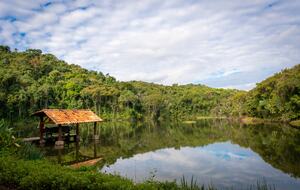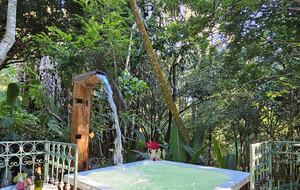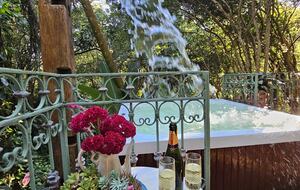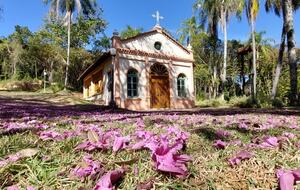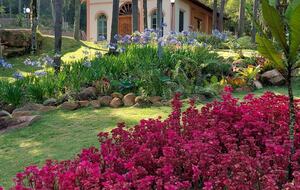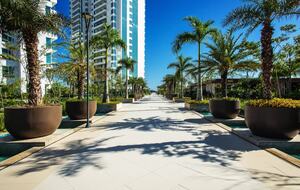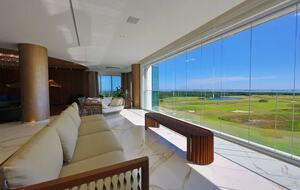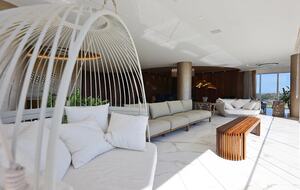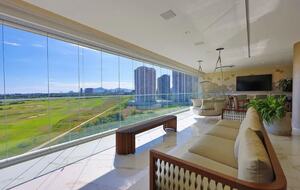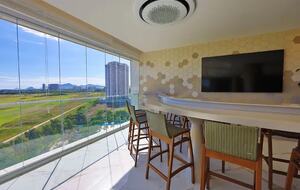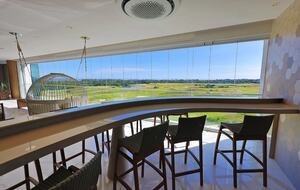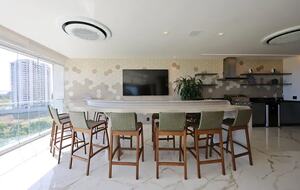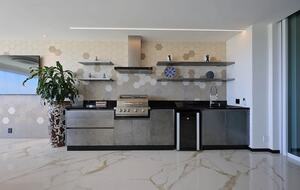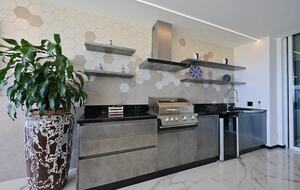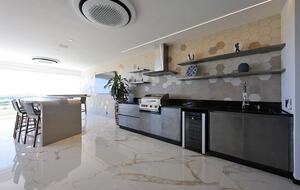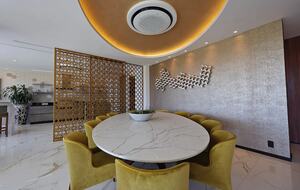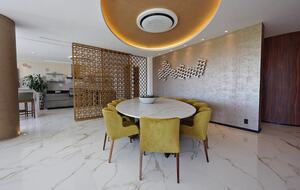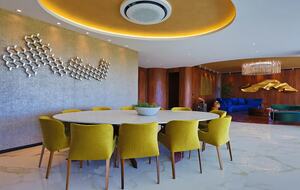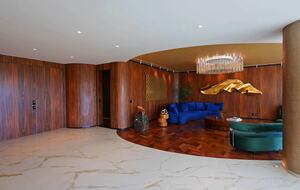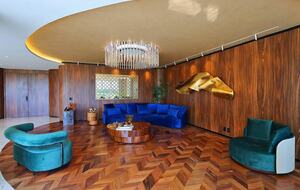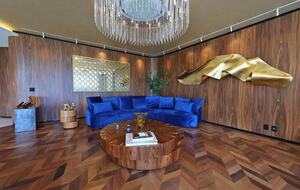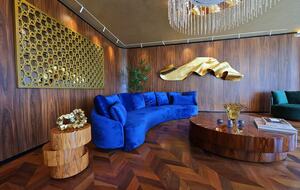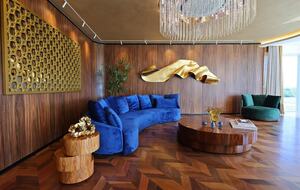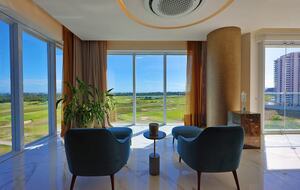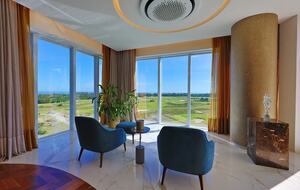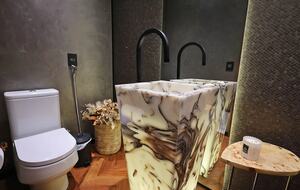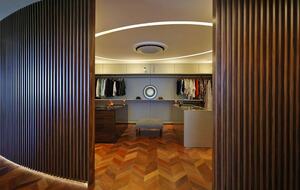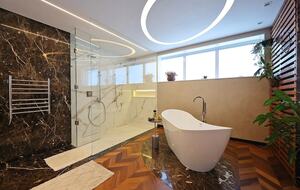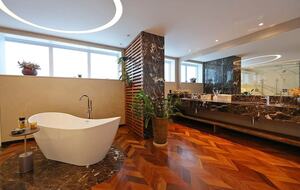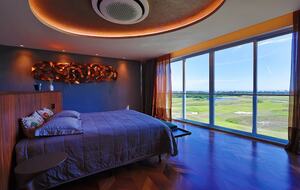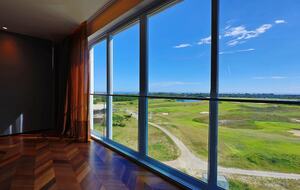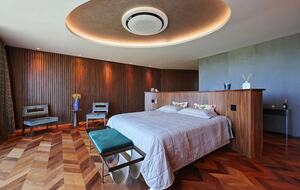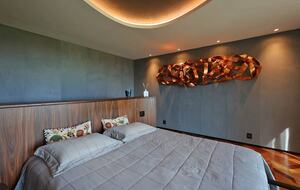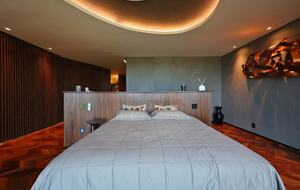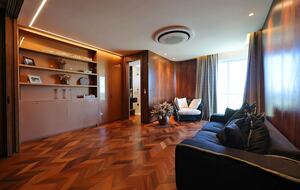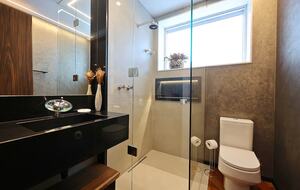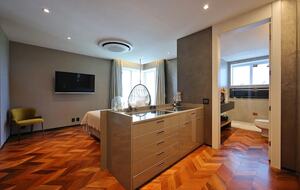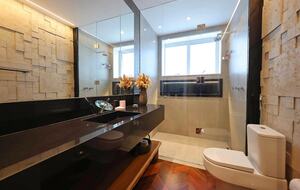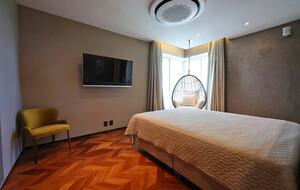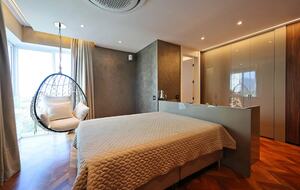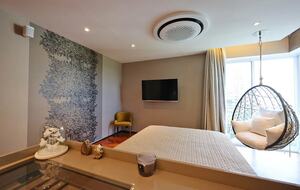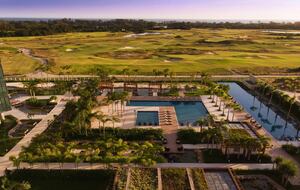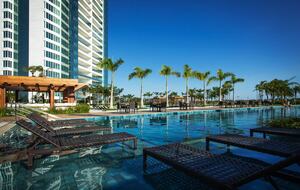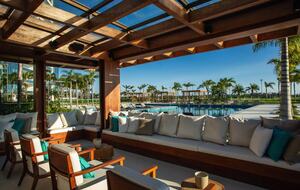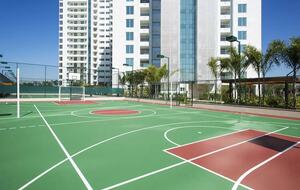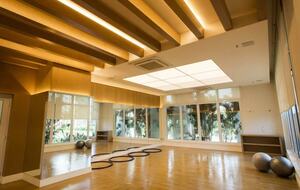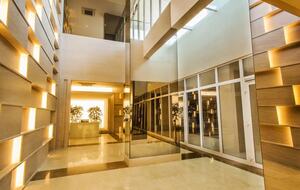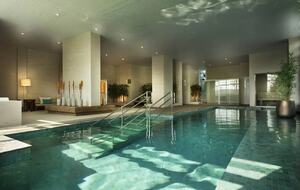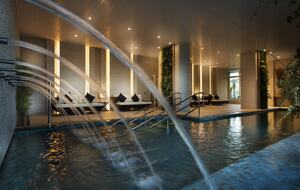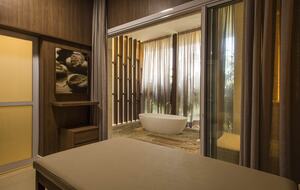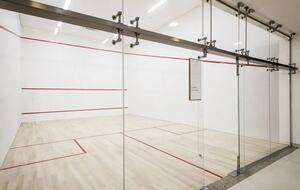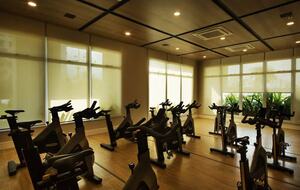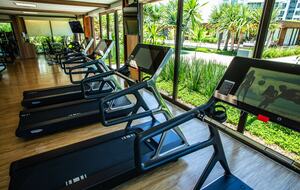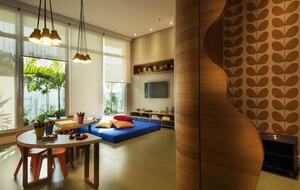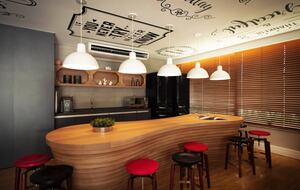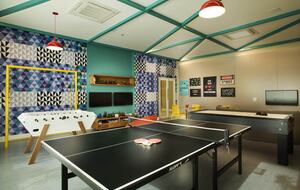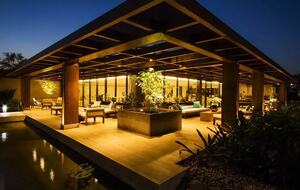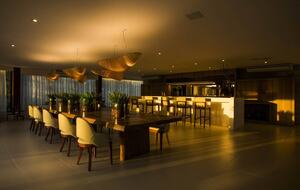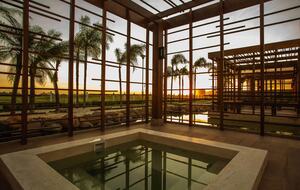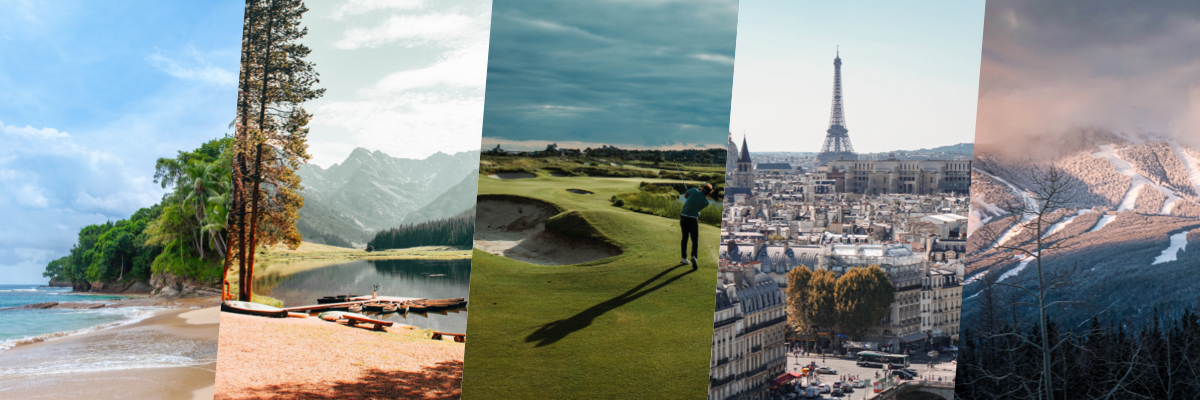Natal, the City of the Sun, capital city of the State of Rio Grande do Norte, is a major tourist destination in Brazil.
Natal and other beaches, like Pipa, are growing more and popular among Brazilian and international tourists. Natal is the safest capital city in Brazil, and one of the Brazilian cities nearest Europe and North America.
Our property is on a half acre land overlooking the sea on Cotovelo beach, the most beautiful beach in Natal. Next to the luxurious In Mare Bali Resort.
Enjoy your stay at our two story home with three bedrooms on each foor in a private condo with only 8 plots of land (we own 4 of the plots), with all the amenities you deserve: A/C in all rooms, Wireless Internet, Cable TV, private pool and a BBQ area to explore your culinary tastes. All this with the help our our dedicated staff.
Optional Services: transport to and from airport,breakfast,cook and laundry service,if and when required.
Natal was built on the right bank of river Potenji, right where the river meets the Atlantic; the soil is very sandy, with dunes and bays protected by reefs which appear all along the shore line.
In December of 1597, a fleet commanded by Jeronimo de Albuquerque arrived to the river Potenji, with the assignments of founding a new city and building a fortress to protect the Portuguese settlement and keep away the Frenchmen, who were trying to do business with the potiguares, native indians. At the same time, by land, arrived to the region a group chiefed by the governor of Pernambuco, Manuel Mascarenhas Homem. On January 6th 1598, those men began to build the Fortress of Three Wise Kings; on December 25th of 1599, a small village was founded one mile away from the fortress; the village was named Natal (Natal is the Portuguese word for Christmas), after the date it was founded.
The city developed very slowly; differently from Pernambuco, the sandy soil of Natal was not adequated to cultivate sugar cane (which was by then the main source of wealth that the Portuguese explored from their colony). In 1,633, the Dutch took over the city; the fortress was renamed to Keulen, and so it was until 1,654, when the Portuguese reclaimed it. Like the Portuguese, the Dutch didn't see much interest in developing the region; again, the situation was very different in Pernambuco, which the Dutch also dominated but developed, leaving traces visible until today, like in the city of Olinda.
The sugar cane was largely cultivated from Bahia to Paraiba, just crossing the southern border of Rio Grande do Norte; after the sugar cane, Portugal explored the gold which was found in Minas Gerais; when the Portuguese kingdom moved temporarily to Brazil, the king settled in Rio de Janeiro. In 1817, provinces from the Northeast attempted a revolution (Revolucao Pernambucana) to try go gain independence from Portugal (the revolution failed, the independence was proclaimed in 1822).
So, Natal was much less of a colony than the rest of the country; this fact (along with the American presence during WW II, see below) possibly contributed to make Natal one of the most libertarian regions in Brazil; the state was the first to abolish slavery, ten years before the rest of the country; the first Brazilian woman to take office as a mayor was elected in a small city near Natal.
Natal was built on the right bank of river Potenji, right where the river meets the Atlantic; the soil is very sandy, with dunes and bays protected by reefs which appear all along the shore line.
In December of 1597, a fleet commanded by Jeronimo de Albuquerque arrived to the river Potenji, with the assignments of founding a new city and building a fortress to protect the Portuguese settlement and keep away the Frenchmen, who were trying to do business with the potiguares, native indians. At the same time, by land, arrived to the region a group chiefed by the governor of Pernambuco, Manuel Mascarenhas Homem. On January 6th 1598, those men began to build the Fortress of Three Wise Kings; on December 25th of 1599, a small village was founded one mile away from the fortress; the village was named Natal (Natal is the Portuguese word for Christmas), after the date it was founded.
The city developed very slowly; differently from Pernambuco, the sandy soil of Natal was not adequated to cultivate sugar cane (which was by then the main source of wealth that the Portuguese explored from their colony). In 1,633, the Dutch took over the city; the fortress was renamed to Keulen, and so it was until 1,654, when the Portuguese reclaimed it. Like the Portuguese, the Dutch didn't see much interest in developing the region; again, the situation was very different in Pernambuco, which the Dutch also dominated but developed, leaving traces visible until today, like in the city of Olinda.
The sugar cane was largely cultivated from Bahia to Paraiba, just crossing the southern border of Rio Grande do Norte; after the sugar cane, Portugal explored the gold which was found in Minas Gerais; when the Portuguese kingdom moved temporarily to Brazil, the king settled in Rio de Janeiro. In 1817, provinces from the Northeast attempted a revolution (Revolucao Pernambucana) to try go gain independence from Portugal (the revolution failed, the independence was proclaimed in 1822).
So, Natal was much less of a colony than the rest of the country; this fact (along with the American presence during WW II, see below) possibly contributed to make Natal one of the most libertarian regions in Brazil; the state was the first to abolish slavery, ten years before the rest of the country; the first Brazilian woman to take office as a mayor was elected in a small city near Natal.
CLIMATE:
- even in the colder winter season, average temperature in Natal is about 24o C (75o F);
- even at the peak of the wet season, the pluviosity levels in Natal are at only 200 mm; in Recife, peak levels are 400 mm, and in Fortaleza, 350 mm.
- because Natal is near the Equatorial Line, the sun at midday will be right overhead nearly every day of the year.
- thunders and bolts are rare in Natal. In Natal, the rainy clouds are formed far into the Atlantic, and then move towards the continent.
 40"+ TV
40"+ TV DVD Player
DVD Player Multiple TVs
Multiple TVs Satellite/Cable TV
Satellite/Cable TV Gated Community
Gated Community Staffed Guard Gate
Staffed Guard Gate Concierge Service
Concierge Service Laundry Service
Laundry Service Air Conditioning
Air Conditioning Covered Parking
Covered Parking High Speed Internet
High Speed Internet Washer & Dryer
Washer & Dryer Wireless Internet
Wireless Internet Outdoor Grill
Outdoor Grill Outdoor Pool
Outdoor Pool




























